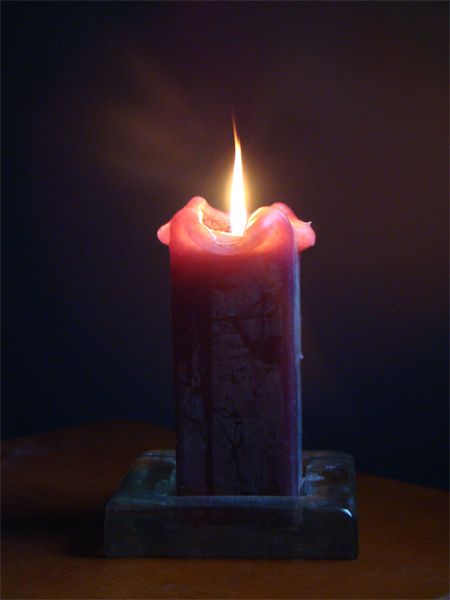
A candle burns at Shakes Manor.
Today marks the 13th Annual Transgender Day of Remembrance, which is set aside to memorialize those killed as a result of anti-transgender hatred or prejudice resulting from fear and ignorance. The event is held in November to honor Rita Hester, whose murder on November 28th, 1998 spawned the "Remembering Our Dead" online project and candlelight vigil.
This year, we remember: Idania Roberta Sevilla Raudales, Luisa Alvarado Hernández, and Génesis Briget Makaligton of Comayaguela City, Honduras; Lady Óscar Martínez Salgado and Reana 'Cheo' Bustamente of Tegucigalpa, Honduras; Krissy Bates of Minneapolis, Minnesota; Fergie Alice Ferg of San Pedro Sula, Honduras; Tyra Trent of Baltimore, Maryland; Priscila Brandão of Belo Horizonte, Brazil; Marcal Camero Tye of Forrest City, Arkansas; Shakira Harahap of Taman Lawang, Jakarta, Indonesia; Miss Nate Nate (or Née) Eugene Davis of Houston, Texas; Lashai McLean and Gaurav Gopalan of Washington, DC; Didem of Findikzade, Istanbul; Camila Guzman of New York, New York; Gaby of Jalisco, Mexico; Ramazan Çetin of Gaziantep, Turkey; Shelley Hilliard of Detroit, Michigan; Jessica Rollon of Bergamo, Italy; Astrid Carolina López Cruz of Madrid, Spain; Chassity Nathan Vickers of Hollywood, California; an unidentified victim in Paris, France; and all the other trans* people around the world who lost their lives to transphobia this year, whose faces we never saw and names we never heard, because they were living on the margins of societies who did not respect nor embrace them.
Julia Serano, a trans activist and author of the oft-mentioned Whipping Girl: A Transsexual Woman on Sexism and the Scapegoating of Femininity, has noted that transphobia kills not just by violent action, but apathetic inaction.
Trans people are often targeted for violence because their gender presentation, appearance and/or anatomy falls outside the norms of what is considered acceptable for a woman or man. A large percentage of trans people who are killed are prostitutes, and their murders often go unreported or underreported due to the public presumption that those engaged in sex work are not deserving of attention or somehow had it coming to them.Lacking federal employment protections, transgender men and women are at higher risk for lack of insurance, adding to the difficulty of securing routine medical care from welcoming practitioners. Transmen, for example, frequently have trouble locating accommodating gynecological services for annual pap smears, risking undiagnosed cervical cancer. The great 2001 documentary Southern Comfort spans the last year in the life of Robert Eads, who died of ovarian cancer after two dozen doctors refused him treatment.
Some trans people are killed as the result of being denied medical services specifically because of their trans status, for example, Tyra Hunter, a transsexual woman who died in 1995 after being in a car accident. EMTs who arrived on the scene stopped providing her with medical care—and instead laughed and made slurs at her—upon discovering that she had male genitals.
That's the kind of hate crime that doesn't make headlines. Or even federal hate crimes statistics.
We remember all the victims of violence and apathy today.
The rest of the year, we must always be fierce advocates and allies together, so that we may never add a new name on a victims list ever again. All in.




Shakesville is run as a safe space. First-time commenters: Please read Shakesville's Commenting Policy and Feminism 101 Section before commenting. We also do lots of in-thread moderation, so we ask that everyone read the entirety of any thread before commenting, to ensure compliance with any in-thread moderation. Thank you.
blog comments powered by Disqus